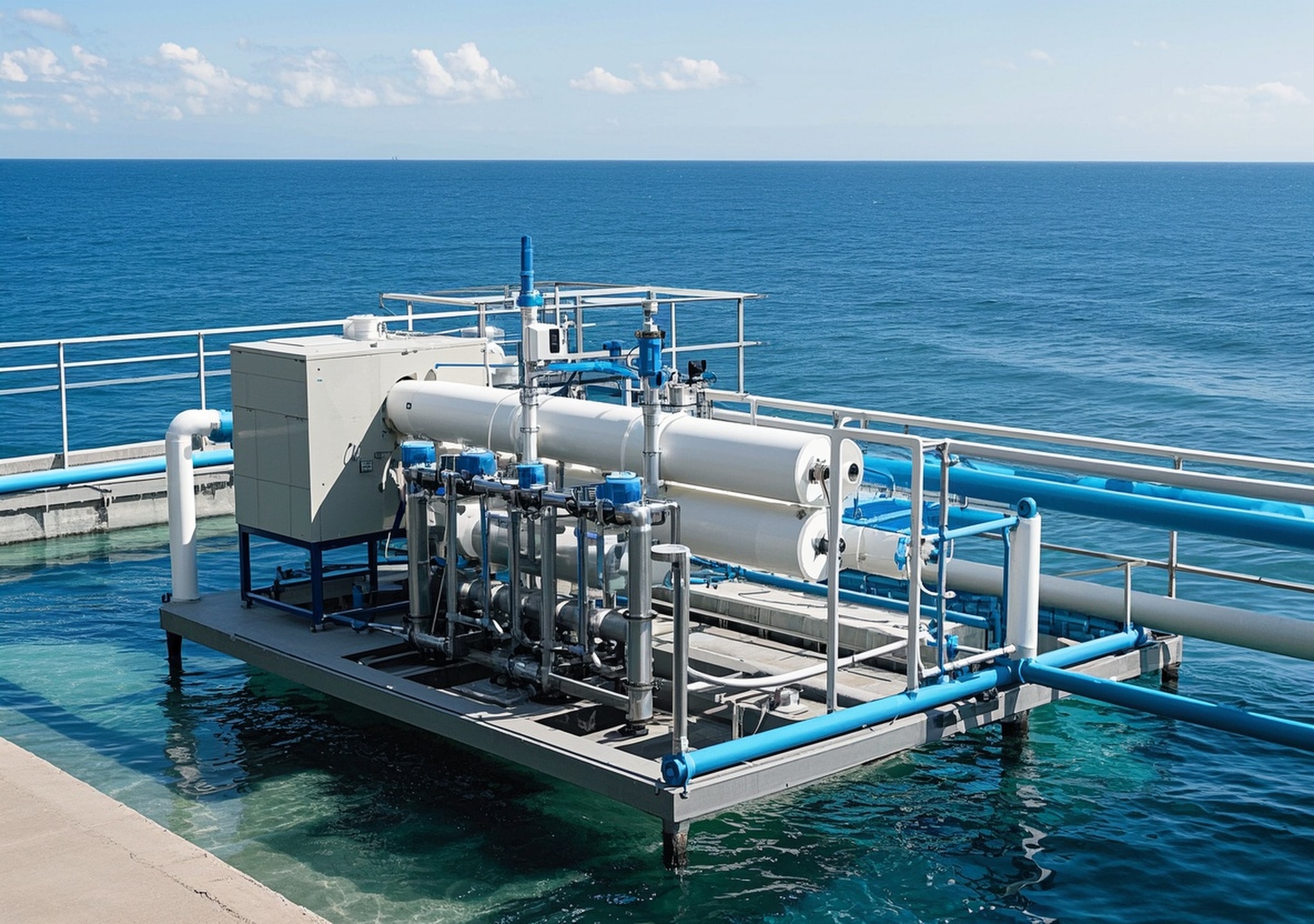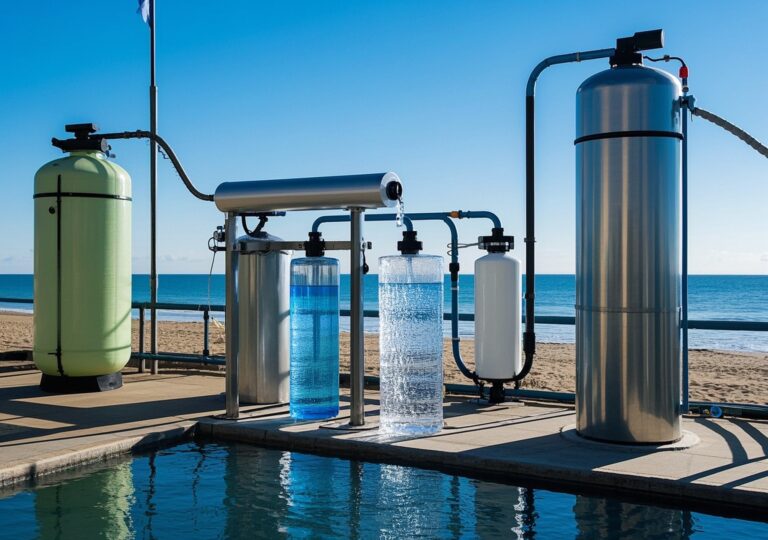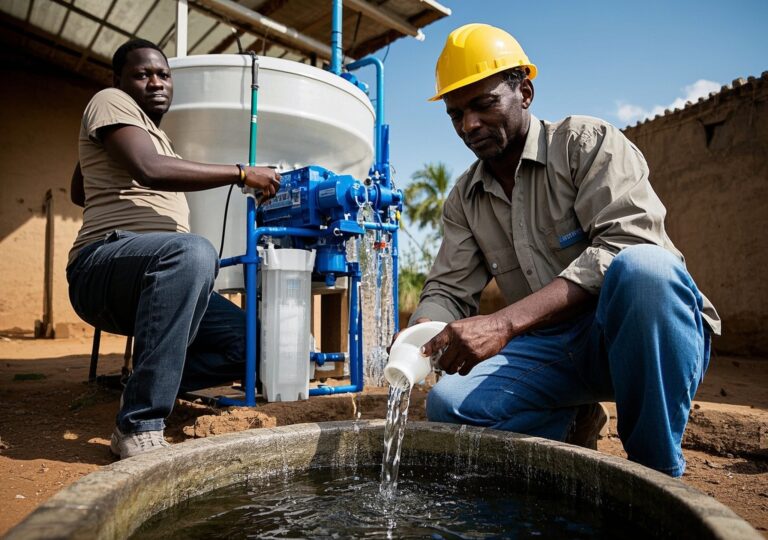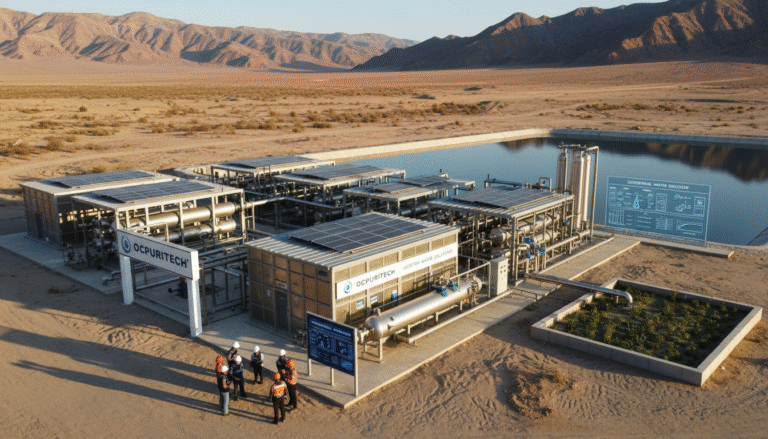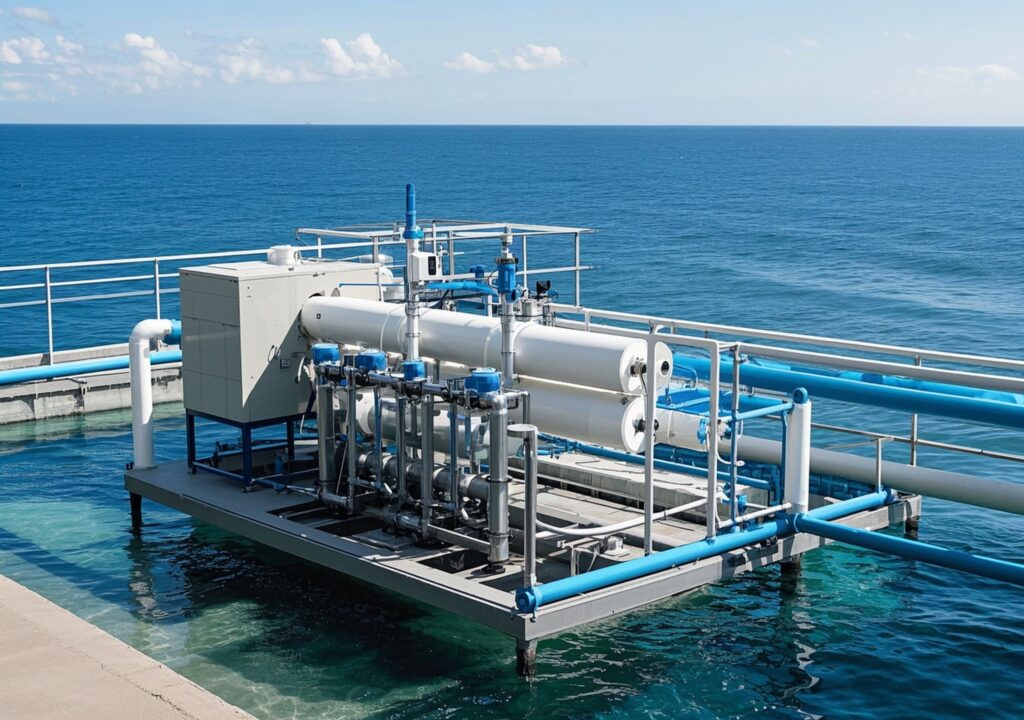
Power Up Your Desalination Strategy with Top-notch Water Treatment Systems
1. Introduction: The Vital Role of Advanced Water Treatment Systems
In an era marked by escalating water scarcity and rising environmental challenges, water treatment systems have become the cornerstone of sustainable water management. These systems are fundamental not only in industrial applications but also in marine environments, where the demand for purified water is critical for operational continuity and environmental compliance. Companies specializing in the development and deployment of advanced water treatment technologies have positioned themselves at the forefront of this sector, delivering innovative solutions that integrate seamlessly into complex infrastructures, particularly those involved in seawater processing and desalination.
2. Product Overview: Types and Core Technologies of Water Treatment Systems
Water treatment systems encompass a diverse array of technologies, each tailored to distinct purification needs. Among the most prevalent are:
- Reverse Osmosis (RO) Membrane Systems: These employ semi-permeable membranes to effectively remove dissolved salts and impurities from seawater or brackish sources. The RO technology represents a gold standard in desalination due to its high efficiency and reliability.
- Pre-treatment Filtration Units: Often involving multimedia and cartridge filters, these devices remove suspended solids and colloidal particles, safeguarding downstream components from fouling and damage.
- Containerized Modular Systems: Compact, fully integrated units designed for easy deployment and scalability, ideal for remote or offshore applications.
- Disinfection and Sterilization Technologies: Including ultraviolet (UV) irradiation and chemical dosing, these processes ensure microbiological safety by eliminating pathogens.
These systems vary in capacity, spanning from compact units serving small vessels and facilities, up to large-scale plants capable of producing thousands of cubic meters of potable water per day. Their flexible design allows customization to meet specific operational and environmental requirements.
3. Spotlight on Desalination Systems: Delivering Reliable Freshwater from Seawater
Desalination systems form a pivotal subset of water treatment technologies, engineered specifically to address the conversion of seawater or brackish water into fresh, potable water. Key performance parameters that define successful desalination installations include:
- Salt Rejection Rate: High-efficiency RO membranes typically achieve over 99% rejection of dissolved salts.
- Recovery Rate: The proportion of freshwater recovered from the source can reach up to 50-60%, depending on feed water characteristics.
- Energy Consumption: Modern plants strive to minimize energy use, often achieving less than 3.5 kWh per cubic meter of water produced.
- Operational Reliability: Systems are designed for continuous operation with automated monitoring and low maintenance requirements.
These features ensure that desalination plants are not only effective in mitigating freshwater shortages but also economically viable over the long term.
4. Global Water Resources Context: The Strategic Importance of Desalination
The global water crisis is intensifying, driven by population growth, urbanization, and climate change. According to recent market analysis, the global water treatment systems market was valued at approximately $38.56 billion in 2023, with projections estimating growth to $66.98 billion by 2030, driven by increasing contamination levels and water security concerns (Grand View Research).
Similarly, the seawater desalination market itself is expanding rapidly, with a valuation of $15.33 billion in 2021 expected to more than double by 2030 (Grand View Research). This surge underscores desalination’s strategic role in augmenting dwindling freshwater supplies, especially in arid regions and coastal zones where demand outpaces natural availability.
5. Innovations Enhancing Water Treatment Technologies
Next-generation water treatment systems embody significant advancements in membrane technology, energy efficiency, and system integration. Key innovations include:
- Advanced Membranes: Incorporation of thin-film composite and graphene-based membranes offering higher salt rejection and fouling resistance.
- Energy Recovery Devices (ERDs): These harness the pressure in brine streams to substantially reduce overall plant energy consumption.
- Smart Automation: Real-time monitoring platforms enable predictive maintenance, reducing downtime and optimizing operational parameters.
In a recent project involving a coastal desalination plant serving a medium-scale industrial client, integration of ERDs and improved pre-treatment filters reduced energy use by 18%, while water recovery increased by 12%. This translated into considerable cost savings and enhanced sustainability metrics.
6. Understanding the Science: Core Principles of Desalination
The desalination process is a multi-stage operation involving:
- Pre-treatment: This stage removes suspended solids, turbidity, and microbial content to protect RO membranes.
- Reverse Osmosis: Pressurized seawater passes through semi-permeable membranes, leaving salts and contaminants behind.
- Post-treatment: Freshwater is stabilized by adjusting pH levels and disinfected to meet potable water standards.
The membrane’s quality and design directly impact efficiency and longevity. Innovations in membrane materials have enhanced permeability while resisting biofouling and scaling, which are common challenges in marine environments.
7. Expanding Applications: From Yachts to Offshore Platforms
Water treatment systems are increasingly adapted for use beyond traditional industrial plants. Specialized configurations cater to:
- Recreational and Commercial Yachts: Compact desalination units supply fresh water during extended voyages.
- Offshore Oil and Gas Platforms: Systems designed to withstand harsh marine climates ensure continuous freshwater availability for crew and operations.
- Harsh Environment Installations: Robust designs accommodate extreme temperature fluctuations and saline conditions.
In one notable case, retrofitting a desalination unit on a maritime research vessel led to a 40% reduction in resupply frequency, enhancing mission duration and operational independence.
8. Compliance with International Regulations and Standards
Water treatment systems deployed in marine and industrial contexts must adhere to strict global standards. These include:
- Certifications from maritime authorities ensuring safety and environmental protection
- Quality control adhering to ISO standards for water quality and system manufacturing
- Compliance with environmental regulations limiting discharge and managing brine responsibly
Maintaining conformance not only guarantees legal operation but also assures customers of reliable and safe water quality.
9. Sustainability: Towards Greener Desalination Solutions
The environmental footprint of desalination processes is a critical concern. Modern water treatment systems implement strategies involving:
- Low-energy design with integration of renewable energy sources such as solar and wind power
- Eco-friendly brine management techniques, including dilution or reuse for industrial purposes
- Wastewater recycling within the plant to reduce overall water consumption
These efforts align with global sustainability goals and demonstrate corporate responsibility. For instance, coupling a photovoltaic array with a seawater RO system in a pilot project demonstrated a 30% reduction in carbon emissions compared to fossil-fueled counterparts.
10. Enterprise Strength and After-Sales Service
Leading manufacturers possess extensive production capabilities, offering full ranges of water treatment solutions with customizable features to meet diverse client needs. Strong after-sales support encompasses:
- Technical training for operational staff
- Remote diagnostics and rapid-response maintenance teams
- Spare parts availability and upgrade services
Such comprehensive service infrastructures are vital for maintaining long-term system performance, especially in remote or challenging installations.
11. Conclusion: Leading the Future of Water Treatment and Desalination
Water treatment systems stand at the nexus of technology and sustainability, providing essential solutions to mounting global water challenges. Driven by continuous innovation, expert implementation, and rigorous quality standards, these technologies empower industries and communities alike to secure reliable, clean water supplies.
With the combination of authoritative global market data and practical, field-proven insights, embracing advanced water treatment systems is an indispensable strategy for any forward-thinking desalination initiative. I encourage stakeholders to deepen their engagement with these technologies and explore tailored solutions that not only address immediate water needs but also foster a sustainable water future.
References:
- Grand View Research: Water Treatment Systems Market Analysis and Forecast (2023-2030)
- Grand View Research: Desalination Technology Market Report (2021-2030)
- OECD: Annual Report on Competition Policy Developments in the United States (2019)

